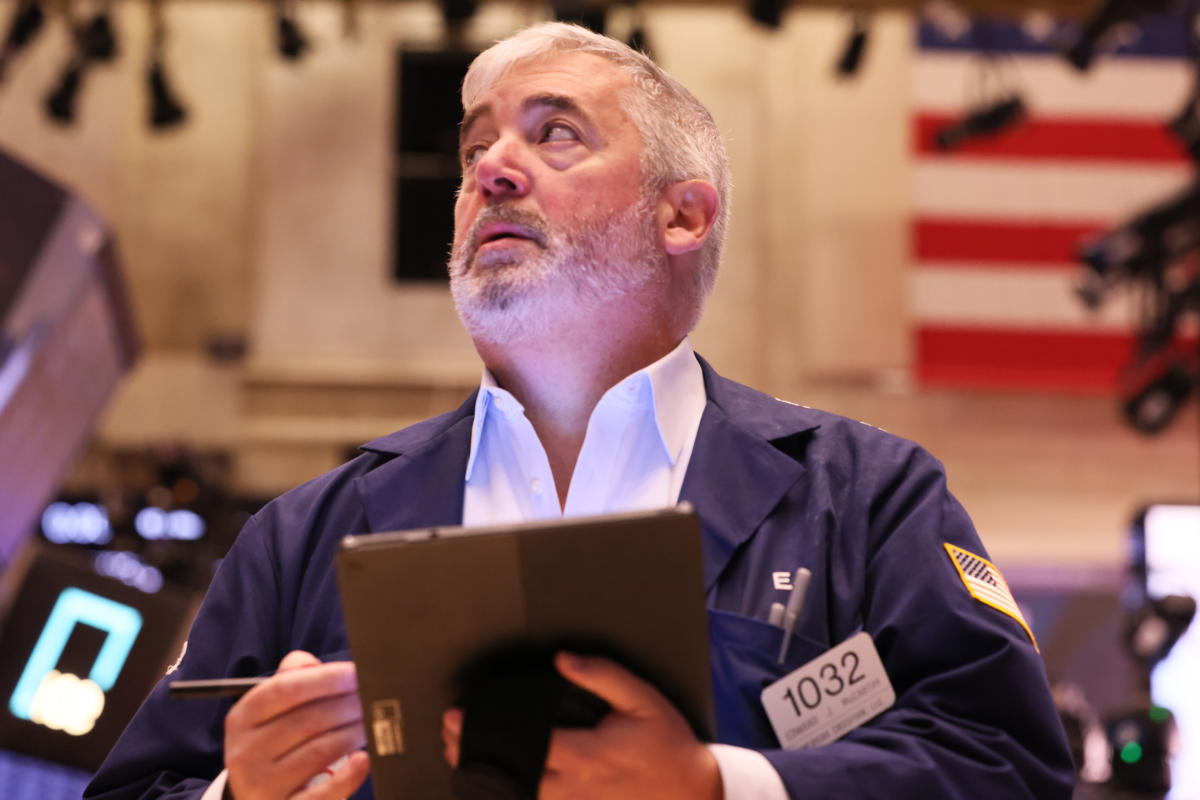Macy's said Tuesday that it will fundamentally revamp its strategy and retail presence, closing about 150 Macy's stores over the next three years while expanding its upscale Bloomingdale's and Bluemercury chains.
The moves marked efforts by the company's new chief executive, Tony Spring, to improve the profitability of the largest department store operator in the United States and fend off a possible takeover bid.
It's the Macy's chain's second major downsizing since 2020 and the company will have 350 stores, just over half its pre-pandemic number.
Macy's described the stores it was planning to close as “underproductive locations” that accounted for 25 percent of the company's total square footage but only 10 percent of its sales. The company expected to raise $600 million to $750 million from selling those stores and streamlining some of its warehouses.
“We need to focus on having the best stores, not the largest number of stores,” Mr. Spring said in a call with analysts on Tuesday.
The company said it would begin notifying workers at stores scheduled to close later in the day. It plans to close about 50 stores this fiscal year and the rest by the end of 2026.
Macy's did not name the locations, but one is the San Francisco store in Union Square, Mayor London Breed's office said. The store, a staple of the shopping district for generations, will remain open next year as Macy's searches for a new owner for the property, the mayor's office said.
As Macy's reduces its retail footprint, Bloomingdale's is expected to open 15 stores. Bluemercury, the company's cosmetics chain, will add 30 stores and remodel others. As of November, there were 58 Bloomingdale's and 158 Bluemercury locations.
“There's less competition there, but the problem is that it's not clear that the luxury department store really has a great future,” said David Swartz, a retail analyst at financial services firm Morningstar. “Many luxury labels operate their own direct sales.”
Bloomingdale's e-commerce sales give the company confidence that opening stores will boost digital sales in surrounding areas. It said about 80 percent of Bloomingdale's digital sales come from markets where the company has physical stores.
The company will open its smaller Bloomingdale's stores – known as Bloomie's – and outlet stores over the next three years, Mr. Spring said in the conference call. In recent years, the company has opened smaller stores in malls rather than enclosed malls that have lost customers. “That’s where the whole market is going,” Mr. Swartz said.
“It makes sense for Macy's to open stores in these smaller locations, but is it too late?” he said. “There are already other companies doing the same thing.”
The decision to downsize the midsize Macy's chain while increasing the presence of luxury chains is a sign that Mr. Spring wants to reposition the company's overall image so that consumers see it as an upscale destination. However, this does not necessarily mean that the company's branches will become more expensive.
“I don’t think taste and style need to cost more; I don’t think it should be reserved for the wealthy,” Mr. Spring said in an interview on Tuesday. “I think we need to do a better job with our content, our presentation and our marketing so that the customer sees what we are selling and is inspired by it.”
Customer surveys showed that people wanted a better shopping experience at Macy's, whether through improved visual merchandising or more help from store associates, the company said. Selling some of its assets could help ensure such improvements, including revamping its merchandise range and hiring more staff in areas such as its footwear and women's ready-to-wear departments.
Macy's will increase the number of employees in some of its stores by using data to determine appropriate staffing levels and train employees on how to recommend products to customers and better assist them in the fitting rooms.
Mr. Spring, who spent four decades at Bloomingdale's, took the helm of the company at a challenging time. In December, a group of investors submitted a bid that would take Macy's private in a deal valued at $5.8 billion. Investors Arkhouse Management and Brigade Capital Management said they might accept their offer to shareholders if the retailer doesn't start sharing nonpublic information with them.
Since then, activists have nominated nine people to Macy's board. The company said in a statement last week that the activists did not provide funding details and instead opted to launch the proxy competition. On Tuesday, Mr. Spring told analysts that Macy's board was evaluating the candidates, but noted that their questions related only to the retailer's financial results and announced three-year strategy.
A representative for the investor groups did not respond to a request for comment Tuesday.
After an initial surge in sales driven by consumer spending on all types of items at the start of the pandemic, Macy's saw sales plunge.
On Tuesday, the company also reported fourth-quarter results, which included the holiday shopping season. Net sales of $8.1 billion were in line with analysts' estimates. Sales at both Macy's and Bloomingdale's fell from a year earlier, while those at Bluemercury rose 2.3 percent, a sign that shoppers continued to gravitate toward the beauty and skin care categories.
The company said it would incur a $1 billion charge related to the restructuring and store closures. At the end of the trading day, shares were up almost 3.4 percent.
Sales fell as Macy's struggled to attract the next generation of shoppers and compete in an increasingly e-commerce-focused world.
“Macy's just wasn't putting its best foot forward for the consumer, so consumers gave up on it and shopped elsewhere,” said Neil Saunders, managing director of market research firm GlobalData. “This is something of a turning point for Macy’s.”
Mr. Saunders said the announcement was a sign that Macy's management was trying to convince investors – who had been frustrated by the company's weak profit margins – that it was capable of overcoming the retailer's challenges.
Even before he officially took office, Mr. Spring was already beginning to make a name for himself. In January, he and outgoing CEO Jeff Gennette sent a memo to employees saying the company planned to cut about 2,300 jobs, or 13 percent of its workforce, as it sought to better align its resources with customer behavior to make decisions more quickly. The company also announced it would close a handful of stores.
The last major restructuring at Macy's took place in February 2020, when the company announced it would close 125 stores and cut 2,000 jobs. Then the pandemic left many stores dark for weeks, forcing the retailer to look at improving its website and e-commerce offerings and figuring out how to lure people back into stores once they reopen.
Mr. Spring said Tuesday that the company will “not bite off more than we can chew” in managing the remaining Macy's stores. “We will be careful, methodical and unemotional in our approach,” he said.
J. Edward Moreno contributed reporting.








 Tue, Feb 27, 2024 at 6:59 p.m. GMT
Tue, Feb 27, 2024 at 6:59 p.m. GMT Tue, Feb 27, 2024 at 6:15 p.m. GMT
Tue, Feb 27, 2024 at 6:15 p.m. GMT Tue, Feb 27, 2024 at 3:54 p.m. GMT
Tue, Feb 27, 2024 at 3:54 p.m. GMT Tue 27 Feb 2024 at 1:30pm GMT
Tue 27 Feb 2024 at 1:30pm GMT